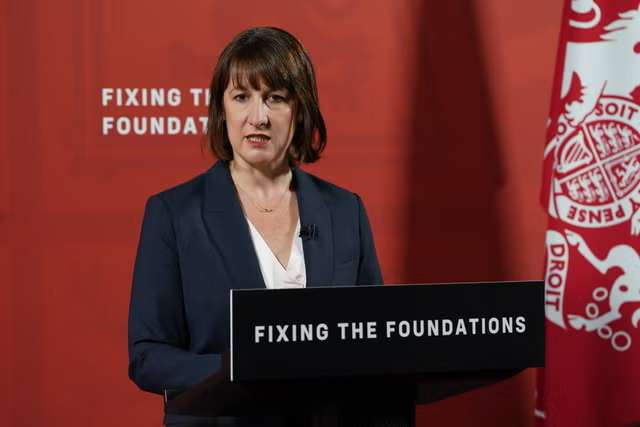Businesses across the UK are preparing for challenging times ahead, with many “battening down the hatches” amid fears of an economic downturn in 2025.
A recent survey by the Confederation of British Industry (CBI) has painted a stark picture, revealing plans for reduced output and hiring as companies grapple with the aftershocks of Chancellor Rachel Reeves’s October Budget.
The CBI’s growth indicator survey, conducted with 899 companies between late November and mid-December, found expectations for growth at their lowest since the political and financial turbulence that marked Liz Truss’s brief tenure as prime minister.
One major point of contention is Reeves’s decision to increase employers’ national insurance contributions, projected to generate £25 billion annually. Alpesh Paleja, interim deputy chief economist at the CBI, warned that the economy risks heading into “the worst of all worlds.”
John Longworth, chair of the Independent Business Network, echoed these concerns.
“Nearly all of the family businesses I speak to in our network are battening down the hatches for a recession and trying to survive this cloth-eared government. They are cutting agencies, stopping recruitment, shedding staff, [and] canceling bonuses. Ms. Reeves appears to be enterprise illiterate.”
John Longworth

Adding to the unease, leading businessman James Reed, chair of recruitment firm Reed, criticized the October Budget, claiming it had “spooked business” and warning of a potential recession “around the corner.”
Inflationary pressures are further exacerbating the situation. The consumer price index (CPI) rose to 2.6% in November, its highest level since March, while the Bank of England opted to hold interest rates at 4.75%, citing “heightened uncertainty in the economy.”
The survey found that businesses across key sectors, including services, manufacturing, and distribution, anticipate significant declines in activity over the next three months.
Official figures for October showed the UK economy contracting for a second consecutive month, marking a worrying trend not seen since the pandemic.
Reeves Defends Tax Choices
Reeves has staunchly defended her fiscal decisions, maintaining that her tax hikes are essential for long-term stability and growth. “Now we have fixed the foundations of our economy, I am going for growth,” she declared following the Budget. Reeves justified her approach when speaking at a CBI event.
“We have asked businesses and the wealthiest to contribute more. I know those choices will have an impact. But I stand by those choices as the right choices for our country: investment to fix the NHS and rebuild Britain while ensuring working people don’t face higher taxes in their payslips.”
Rachel Reeves
Despite her confidence, the survey results indicate a widening gap between businesses expecting a decline in output and those predicting growth, now at a 24 percentage-point disparity. This is the worst figure since November 2022, which saw a 27-point gap.
Critics argue that more needs to be done to support businesses and encourage economic growth. Paleja emphasized the urgent need for reform to prevent stagnation, while Longworth stressed the importance of prioritizing enterprise-friendly policies to reverse the downward trend.
The CBI’s findings come at a crucial time for the government, which has made economic growth a central pillar of its agenda. However, with indicators pointing toward a challenging road ahead, Reeves faces mounting pressure to balance fiscal responsibility with measures that foster business confidence.
READ ALSO: M.anifest Reflects on Galamsey’s Devastation






















